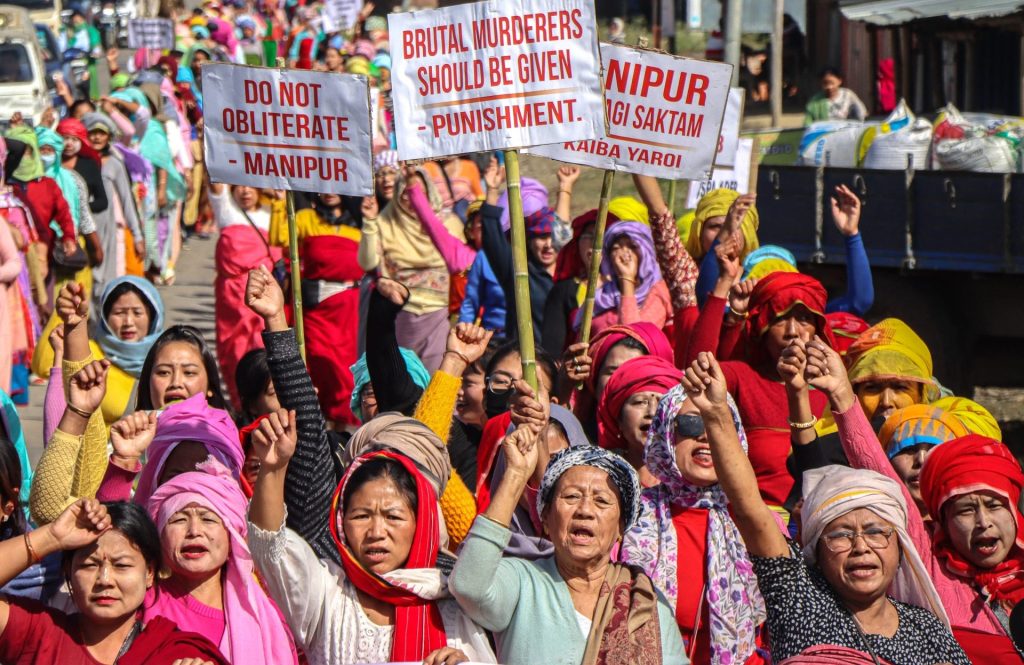By Special Correspondent
The findings of the latest United Christian Forum (UCF) Report of 2024 are deeply disturbing. If the rising trend of violence against Christians is not immediately curtailed through political will and decisive government action, it could threaten the identity and very existence of the Indian Christian community in their homeland well before 2050.
The number of attacks against Christians has skyrocketed, increasing from 127 in 2014 to 834 by December 2024. Uttar Pradesh and Chhattisgarh have emerged as hotspots of escalating hate crimes, marked by brutal mob violence, rampant social ostracization, and systemic failures within the law and justice machinery. According to UCF office bearers, elements of the justice system appear complicit in these incidents.
The reported 209 cases in Uttar Pradesh and 165 cases in Chhattisgarh in 2024 alone only scratch the surface. Across the country, the actual number of crimes may be three to ten times higher, as many attacks go unreported due to fear of retribution in an environment of impunity and political patronage.
A pervasive sense of fear dominates the discourse—fear of cultural “police” who dictate what defines an Indian citizen, who qualifies as “loyal,” and who is labeled an “alien” to be identified, isolated, and eliminated. There is also fear of the state, stemming from the experiences of the past decade where perpetrators of violence often walk free while innocent pastors, their wives, and even their children are incarcerated. Over a hundred innocent individuals remain in custody, repeatedly denied bail. In such cases, the justice process itself has become a form of punishment.
This crisis is unfolding in plain sight, jeopardizing India’s international reputation as a democratic nation that upholds the rule of law and guarantees fundamental rights. The UCF has expressed grave concerns about the implications for Bharat’s global standing.
“The Christian community, which has long been a peaceful and integral part of India’s diverse society, is now living in fear,” stated Dr. Michael Williams, President of UCF. Attacks against Christians have become increasingly frequent, brutal, and systematic. These are not just statistics—they represent the lives of real people, families torn apart, communities shattered, and individuals persecuted for their faith.
This ongoing tragedy persists even as Prime Minister Narendra Modi and his administration periodically engage with Christian religious leaders in Kerala, New Delhi, and other regions.
The violence appeared to peak during the Christmas season of 2024, with 14 separate attacks on Christian gatherings reported across the country. Shocked by the escalation of violence, particularly against the community’s most vulnerable members, over 400 senior Christian leaders and 30 Church groups submitted an urgent appeal to President Droupadi Murmu and Prime Minister Narendra Modi on December 31, 2024. They called upon the nation’s conscience to halt the persecution of Christians.
The UCF’s annual report for 2024 documented 834 incidents of violence against Christians. However, only 392 of these complaints were registered as First Information Reports (FIRs), as the police exercise discretion in determining which complaints warrant further investigation and possible prosecution.
The data highlights the disproportionate impact of violence on vulnerable communities, with incidents involving 154 women, 342 Dalits, and 354 Tribals. A detailed breakdown of the violence includes:
- 149 physical assaults
- 209 incidents of property damage
- 798 cases of intimidation, threats, and harassment
- 331 instances of restrictions on religious assemblies
The UCF has demanded the transparent enforcement of laws safeguarding religious freedom and minority rights. Such transparency and integrity in governance are critical to ensuring unbiased investigations, fair trials, and accountability for those responsible for these heinous acts.
